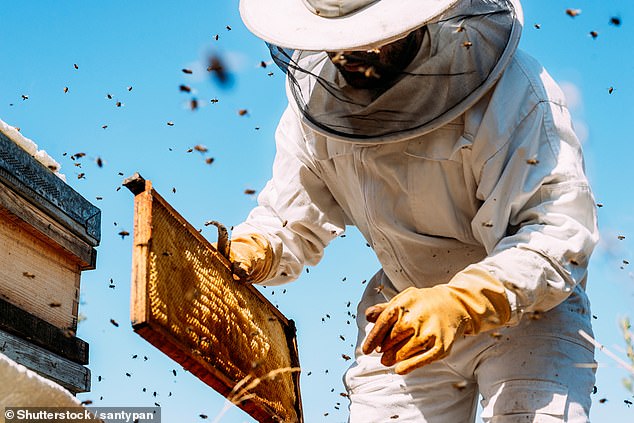My neighbor has started keeping bees. Is there any way I can object to this?
GH, Paddock Wood, Kent.
The problem: A homeowner is worried about his neighbor’s new hobby: beekeeping. But is there anything he can do?
Dean Dunham responds: The starting point is that your neighbor has the right to keep bees and if they don’t cause you any harm or major problems, you won’t be able to object or stop your neighbor just because you don’t like the idea.
However, if you believe that bees are causing a nuisance or risk to you and your family’s health, the position potentially changes.
A law called the Environmental Protection Act 1990 covers a range of environmental issues that can be construed as a legal nuisance, including noise, odors and pollution.
Section 79(f) states that a statutory nuisance includes “any animal kept in such a place or manner as to be injurious to health or a nuisance.”
It is not necessary to show real discomfort; it is enough that the activity you complain about interferes with your personal comfort.
Additionally, local authorities sometimes have their own bylaws or regulations regulating beekeeping, so it is worth checking if this is the case where you live and finding out exactly what those regulations say.
Armed with what the law and local regulations say, in the first instance, you should talk to your neighbor and express your concerns in a friendly, non-confrontational manner.
If this doesn’t resolve the issue, your next step will be to contact your local council’s environmental health department and make a complaint.
Please note that for your complaint to be taken seriously, you will need to demonstrate that a legal nuisance exists or that local statutes or regulations (if any) are being violated.
Therefore, before contacting the council, you should gather as much evidence as possible in relation to the problem, such as photographs or videos of bees causing nuisance or risks to your or your family’s health.
If the local council accepts that a statutory nuisance exists, it will have power under Section 80 of the Environmental Protection Act to take various measures, including issuing a notice requiring the abatement of the nuisance or prohibiting or restricting its occurrence or recurrence. . It could also severely restrict, or even shut down, the beekeeper’s activities.
Tree thieves took my maple. Can I file a claim?
A very expensive Japanese maple in a pot was stolen in front of my front door. Can I claim on my insurance?
BN, Lyndhurst.
Dean Dunham responds: Most home contents insurance policies will cover the theft of plants from your property.
However, policies differ, so you’ll need to check the wording of your particular contents insurance policy to see what it says about this.
All policies have various exclusions (i.e. a list of items and circumstances that you cannot claim for), so you will need to ensure that potted plants are not included in that list and ensure that your “outside” cover is not included. limit it to your backyard. .
As an example, I recently saw a policy that specifically excluded coverage for theft of plants planted in the ground, rather than in pots.
Insurers also tend to exclude items that should have been kept indoors, so it’s important that you provide proof that this is an “outdoor” plant.
If you are covered, you will need to determine if there is a limit on the amount you can claim.
Outdoor items typically have lower coverage limits due to the higher risk of theft or damage and are therefore typically only covered by insurance providers up to a specific amount, often around £250.
When you have an expensive item, it is always worth notifying your insurance provider before coverage begins and asking for written confirmation that you will be covered in the event of damage or theft.
For outdoor items, it is also advisable to ask for confirmation that they will be covered and indicate precisely where they will be located outside.
If you later have cause to make a claim, this written confirmation of your coverage will benefit you and should ensure a smooth claims process.

